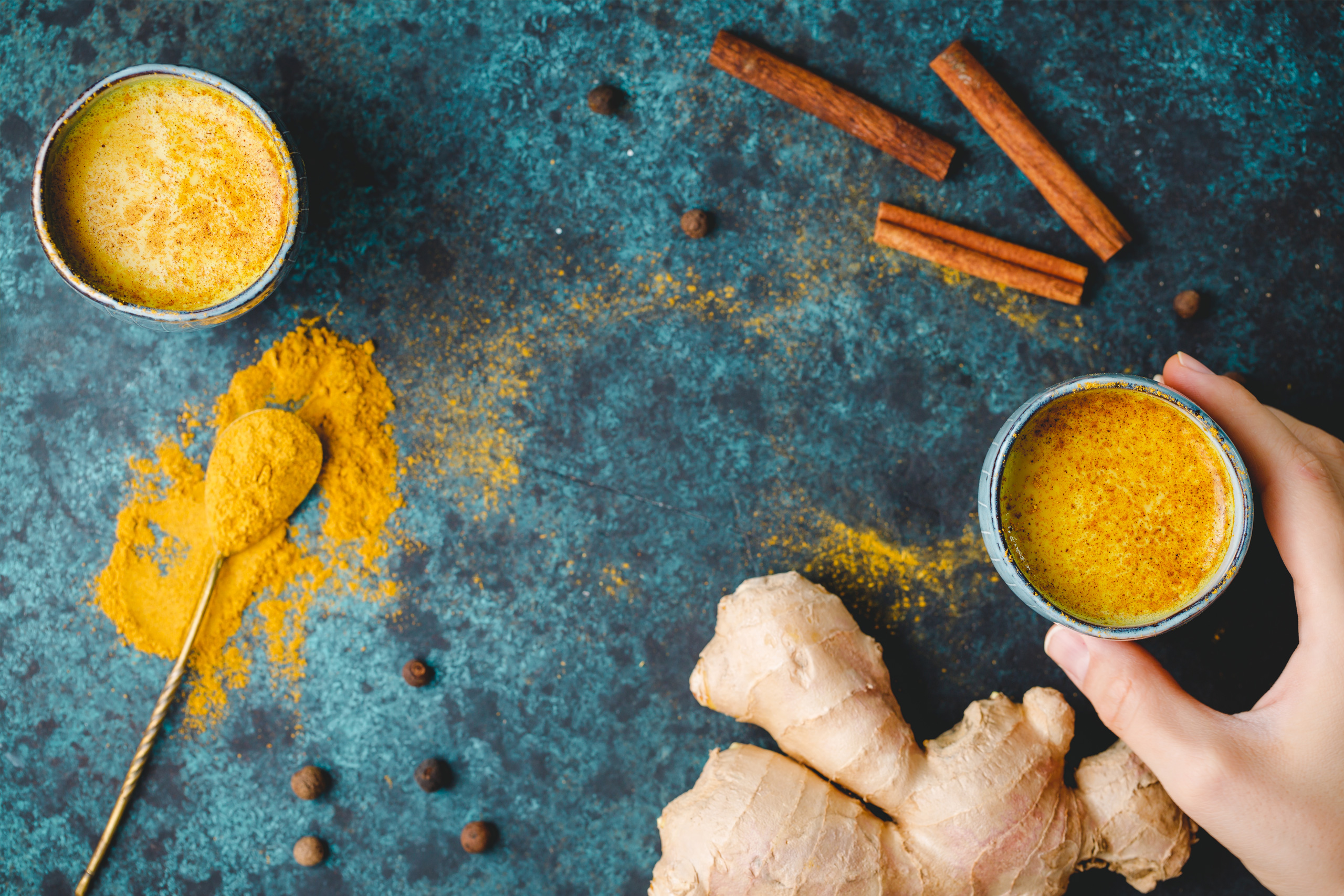Spices like cinnamon, turmeric, and ginger have been used for centuries for flavor and their health-promoting properties. They can be powerful allies in your wellbeing—but use them wisely, especially if you’re taking medications. Here’s what you need to know.
Why People Use Spices as Supplements
- Cinnamon is praised for its ability to regulate blood sugar and support heart health.
- Turmeric, especially its key compound curcumin, boasts impressive antioxidant and anti-inflammatory effects.
- Ginger is well-known for soothing digestion, easing nausea, and even lowering cholesterol and blood sugar.
All three are available both as culinary spices and in concentrated supplement form. While small amounts used in cooking are generally safe, therapeutic doses—like those found in capsules or extracts—can interact with medications or raise health concerns (medscape.com).
Cinnamon: A Sweet Helper with Hidden Risks
Benefits:
- Antioxidant and anti-inflammatory
- May help with blood pressure, blood sugar, and even microbial infections
- Being studied for potential benefits in certain cancers
Risks & Interactions:
- Contains coumarin, especially in cassia cinnamon. High coumarin levels can stress the liver and increase bleeding—especially if you’re taking blood thinners like warfarin (medscape.com).
- May reduce the effectiveness of medications by speeding their removal from the body.
- Can interact with pain relievers, antidepressants, chemotherapy, and diabetes medications.
- Overuse may cause upset stomach, headaches, or skin irritation (medscape.com).
What Patients Should Do:
- Use small amounts in foods rather than large supplements.
- Ask your provider about cinnamon if you’re on anticoagulants, diabetes meds, or chemotherapy.
- Switch to Ceylon cinnamon (“true” cinnamon) if using large amounts—it has less coumarin.
Turmeric: A Golden Spice With Powerful Effects
Benefits:
- Curcumin offers strong anti-inflammatory, antioxidant, and pain-relief effects.
- Some studies suggest cognitive benefits and cancer-fighting potential (medscape.com).
Risks & Interactions:
- May interfere with liver enzymes, affecting antidepressants, blood pressure drugs, antibiotics, and chemotherapy.
- Enhances blood thinning, lowers blood sugar, and may lower blood pressure, increasing the risk of bleeding or low blood sugar when taken with blood thinners, antidiabetics, insulin, or blood pressure medications .
- Bioavailability (how well your body absorbs it) is poor unless consumed with fats and agents like black pepper. Traditional recipes suggest pairing with ghee, pepper, lemon, or ginger (medscape.com).
- Contraindicated for those with gallstones, cholestasis, bleeding disorders, or pregnancy/breastfeeding—especially in high doses (medscape.com).
Tips for Safe Use:
- Stick with culinary doses unless your provider recommends higher amounts.
- Always mention turmeric supplements at your doctor visits, especially if you’re on blood thinners or antidiabetics.
- Enhance effects naturally by cooking turmeric with pepper, fats, or vitamin C-rich foods rather than taking large standalone pills.
Ginger: Digestive Support with a Side of Caution
Benefits:
- Offers anti-inflammatory, immune-boosting, and anti-nausea benefits.
- May support healthy cholesterol and blood sugar levels (medscape.com).
Risks & Interactions:
- Contains gingerol, which can thin the blood—potentially increasing bleed risk with blood thinners .
- Might lower blood sugar similarly to some diabetes medications, which could lead to low blood sugar episodes .
- In large doses, may irritate the stomach causing heartburn or bloating .
Guidelines for Patients:
- Use fresh or culinary ginger rather than high-dose supplements.
- Talk to your provider about ginger use if you’re on blood thinners or diabetic regimens.
- Take smaller doses to minimize digestive side effects.
General Advice for Using Spices Safely
- Culinary Use = Safe: Table spices are unlikely to cause issues.
- Supplements = Caution: Higher doses increase risks—always check with your provider.
- Full Disclosure is Key: Tell your provider about any spices or herbal supplements you’re using.
- Timing Matters: Take supplements at a different time than your medications to reduce interaction risks.
- Stick with Quality: Choose reputable brands tested by third parties to avoid contaminants.
- Watch for Symptoms: Be alert for unusual bruising, bleeding, low blood sugars, stomach upset, or fatigue.
- Regular Check-ups: If taking spices long-term, periodic bloodwork may be needed for INR, liver function, and blood sugar.
What to Bring to Your Doctor’s Visit
- When visiting your provider, consider bringing:
- A list of all prescription, over-the-counter, and herbal supplements.
- Notes on how much cinnamon, turmeric, or ginger you use.
- Any symptoms you’ve noticed: bruising, bleeding gums, heartburn, low blood sugar, etc.
- A clear list of medications, especially blood thinners, diabetes, or cancer drugs.
Quick Summary Table
Cinnamon
Benefits
Lowers blood sugar, antioxidant, antimicrobial
Possible Risks
High coumarin → liver/bleed risk; drug interactions
What to Do at Home
Use Ceylon, small amounts, disclose supplement use
Turmeric
Benefits
Anti-inflammatory, antioxidant, pain relief
Possible Risks
Thins blood, lowers sugar/BP; bioavailability issue
What to Do at Home
Cook with pepper/fat, avoid in pregnancy/gallstones
Ginger
Benefits
Relieves nausea, inflammation, may improve metabolism
Possible Risks
Thins blood; may irritate stomach in high doses
What to Do at Home
Use fresh, disclose if on blood thinners/diabetes meds
Final Thoughts
Spices can offer wonderful health benefits and enjoyable flavors. However, in supplement form or in large amounts, cinnamon, turmeric, and ginger can affect how your medications work—and in rare cases, may cause unwanted side effects.
Use spices in cooking freely.
Use caution with high-dose supplements—always consult your healthcare provider.
Be transparent with your care providers about any supplements you’re taking.
Why This Matters for You
Understanding how dietary supplements interact with medications empowers you to make safer, smarter choices. Your provider is your best resource to help you enjoy spices safely—maximizing benefits while reducing risks.
References
This article is based on a Medscape summary from July 2, 2025, by Julia Senn, which reviewed research on cinnamon, turmeric, and ginger—including their potential benefits, drug interactions, and safety considerations (facebook.com, medscape.com).
If you have questions or want personalized advice before introducing any supplements—especially if you take blood thinners, diabetes medications, or chemotherapy—please reach out to a qualified healthcare professional. And don’t forget to bring this guide to your next appointment for an informed discussion!
Innate Healthcare Institute encourages open, informed conversations with your care team about natural supplements. Together, we can make your wellness journey safe, effective, and tailored to you.




